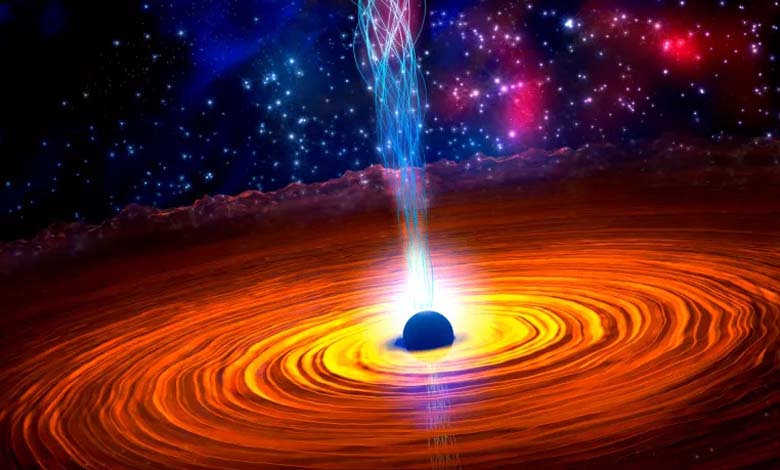How did black holes transition from star production to quenching?

Astronomers achieved a groundbreaking discovery using the James Webb Space Telescope, as they found early galaxies in the universe characterized by small red spots, potentially containing massive black holes.
The findings, published in “The Astrophysical Journal Letters,” challenge traditional theories of galaxy formation, suggesting that black holes formed alongside the first stars and influenced galaxy evolution.
This discovery seems to contradict the traditional narrative that galaxies form gradually, with black holes preceding stars.
The International Astronomy Center in the UAE stated that sighting the crescent moon of the month of Shaaban on Saturday, February 10th, would be possible through telescopes from Australia, central and southern Asia, and southern Europe.
It confirmed that sighting would be challenging with the naked eye in most of the African continent, while it would be relatively easy with the naked eye in most of the American continents.
Engineer Mohammed Shoukat Ouda, the center’s director, explains that “consequently, the beginning of the month of Shaaban is expected to be on Sunday, February 11th, in most Islamic countries, and on Monday, February 12th, in eastern countries requiring naked-eye sighting, such as India, Bangladesh, and Pakistan.”
The research suggests a tighter interaction between star formation and black holes, where each initially enhances the growth of the other through positive feedback, and later, black holes prevent star formation through negative feedback. This transition from positive to negative feedback occurred about 13 billion years ago, approximately one billion years after the Big Bang.
The researchers state that computer simulations and additional observations, particularly using the James Webb Space Telescope, will help validate and improve this new understanding of early galaxy formation and evolution.












